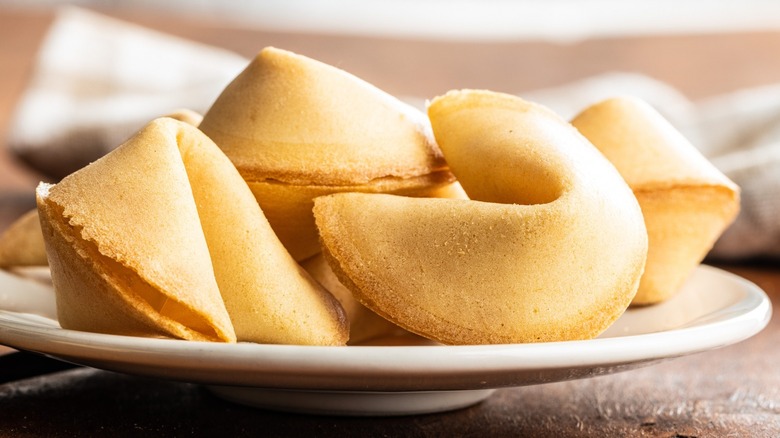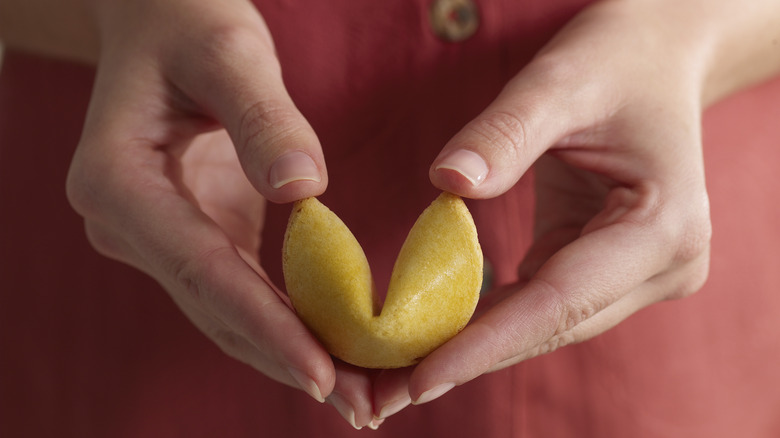Your Fate Predicted On Fortune Cookies Will Now Be Written By AI
Artificial intelligence programs are continuously evolving, sometimes to the point where it can be difficult to tell the difference between human and machine. If used dishonestly, this could be a bad thing, but to streamline simple and repetitive tasks such as writing fortune cookie messages, it could be a helpful tool. This is especially true for a company as large as OpenFortune, which supplies fortune cookies throughout the United States to nearly 50,000 restaurants. Announced today, OpenFortune will be using OpenAI's ChatGPT to produce the fortunes meant to predict the future for so many. Additionally, this technology will be able to originate a larger number of messages than typically found in fortune cookies created the old-fashioned way.
Before, some of OpenFortune's messages were written by co-founder Matt Williams. Per Business Insider, Williams would look to his personal life to decide what fortunes customers would most like to read. "I think a lot of the emotionality in fortune cookies is the same: Your life is short; go do that thing; apply for that job; go ask that girl on a date. I get inspiration from different philosophies, but stoicism is my favorite," he said. While some simply consider them treats at the end of a meal, others take these cookies quite literally.
Psychology explains why fortune cookies are believable
Have you ever slid a slip of paper out of a fortune cookie, and found the message so relatable that you questioned its legitimacy? That's because the messages are written with the Barnum effect in mind. Named after Barnum from The Ringling Brothers, this psychology proves that it doesn't take much for people to see a generic message as something that's applicable to their specific lives. Therefore, if the message reads "good days ahead," practically anybody could believe one of their following days will be good. If it's something more general, like "patience is a virtue," it wouldn't be hard for the reader to relate it to their own life.
Despite fortune cookies being served at Chinese food deliveries and restaurants, these crunchy treats aren't actually from China, nor are they present there. As Japanese researcher Yasuko Nakamachi explained to The New York Times, these cookies are actually Japanese desserts, which were first created in small bakeries in Kyoto. Sohonke Hogyokudo, one Japanese bakery located near a Shinto shrine, serves up these exact cookies with one large difference. Unlike the millions AI technology will be making for OpenFortune, this bakery only has 23 fortunes in rotation.

